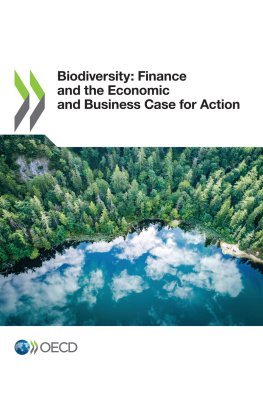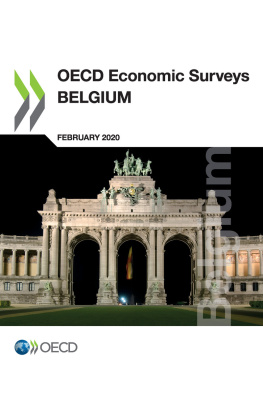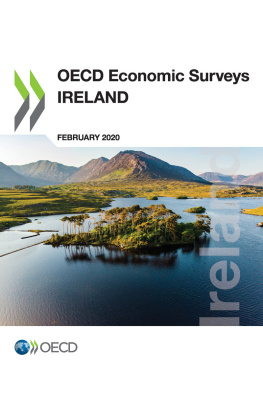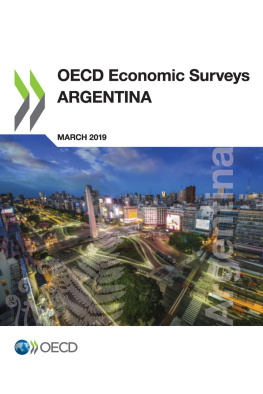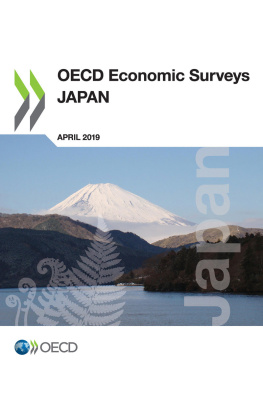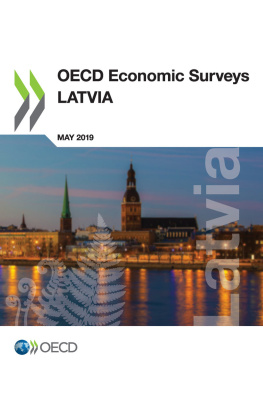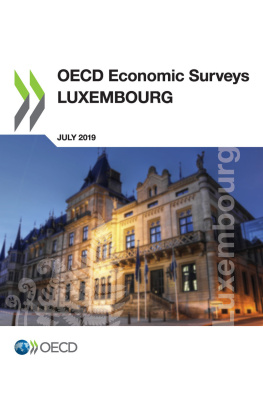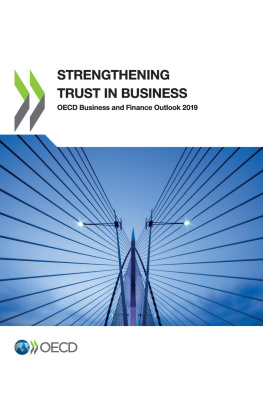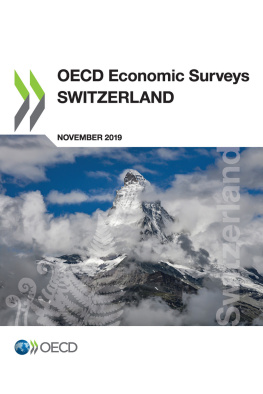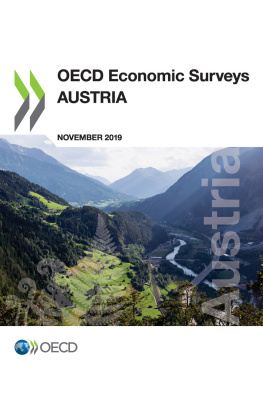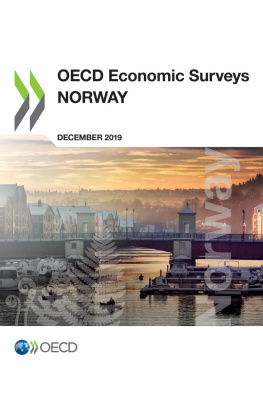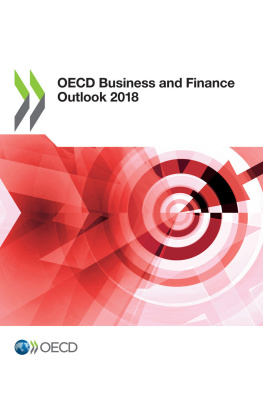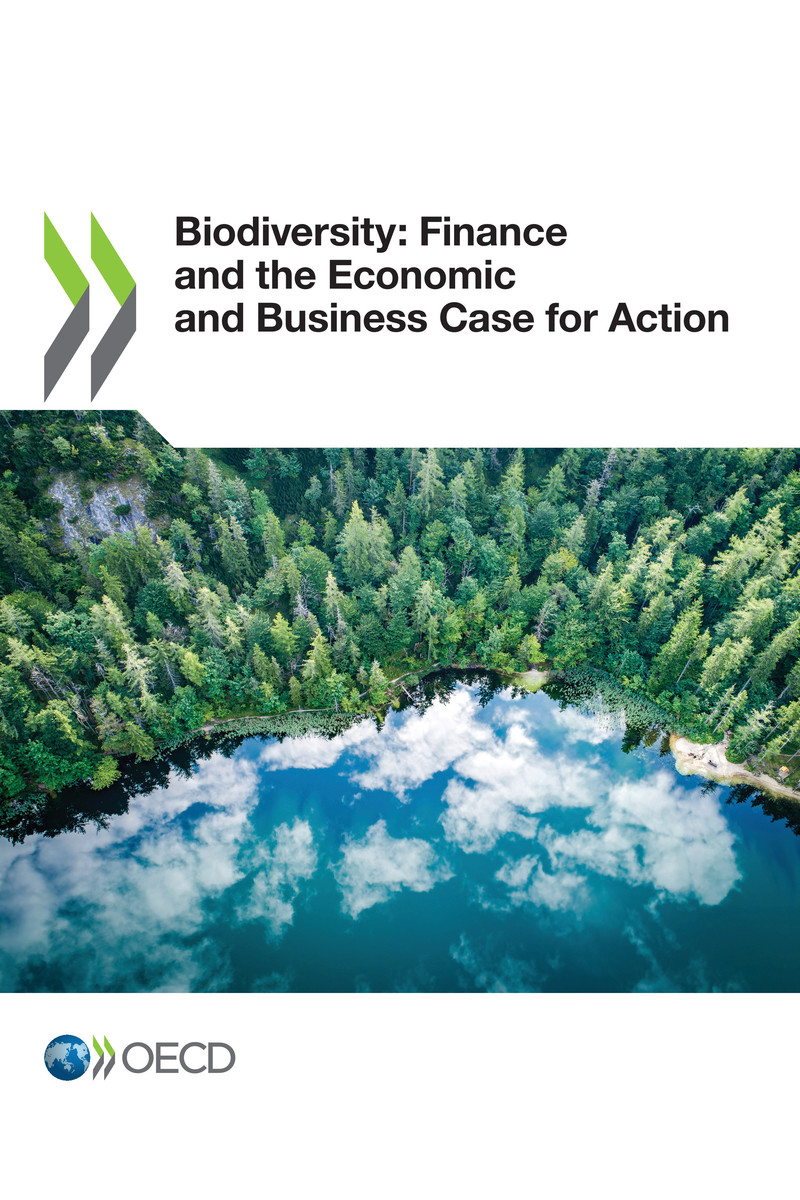Biodiversity: Finance and the Economic and Business Case for Action
Please cite this publication as:
OECD (2019), Biodiversity: Finance and the Economic and Business Case for Action , OECD Publishing, Paris, https://doi.org/10.1787/a3147942-en .
Metadata, Legal and Rights
ISBN: 978-92-64-79322-4 (print) - 978-92-64-59704-4 (pdf) - 978-92-64-76436-1 (HTML) - 978-92-64-62826-7 (epub)
DOI: https://doi.org/10.1787/a3147942-en
This work is published under the responsibility of the Secretary-General of the OECD. The opinions expressed and arguments employed herein do not necessarily reflect the official views of OECD member countries.
This document, as well as any data and map included herein, are without prejudice to the status of or sovereignty over any territory, to the delimitation of international frontiers and boundaries and to the name of any territory, city or area.
The statistical data for Israel are supplied by and under the responsibility of the relevant Israeli authorities. The use of such data by the OECD is without prejudice to the status of the Golan Heights, East Jerusalem and Israeli settlements in the West Bank under the terms of international law.
Note by Turkey
The information in this document with reference to Cyprus relates to the southern part of the Island. There is no single authority representing both Turkish and Greek Cypriot people on the Island. Turkey recognises the Turkish Republic of Northern Cyprus (TRNC). Until a lasting and equitable solution is found within the context of the United Nations, Turkey shall preserve its position concerning the Cyprus issue.
Note by all the European Union Member States of the OECD and the European Union
The Republic of Cyprus is recognised by all members of the United Nations with the exception of Turkey. The information in this document relates to the area under the effective control of the Government of the Republic of Cyprus.
Photo credits: Cover Christoph Oberschneider/ Shutterstock
Corrigenda to publications may be found on line at: www.oecd.org/about/publishing/corrigenda.htm .
OECD 2019
The use of this work, whether digital or print, is governed by the Terms and Conditions to be found at http://www.oecd.org/termsandconditions .
Foreword
Biodiversity the variety of life on earth underpins the well-being of billions of people every day. It provides a myriad of ecosystem services, such as the provision of food, clean water and air, nutrient cycling, and carbon sequestration. The economic value of these services, although often ignored in decision-making, are vast and should also be highlighted. Globally, they are estimated to range between 125 and 140 trillion dollars per year, far more than the worlds gross domestic product.
Despite our dependency on biodiversity, large-scale inefficiencies of our production and consumption systems are driving the planet towards its sixth mass extinction. In the space of a few decades, we have appropriated vast swathes of the planet for human use, destroying and degrading terrestrial, marine and aquatic ecosystems.
Biodiversity and ecosystem services are essential in achieving the 2030 Sustainable Development Goals. Governments, businesses and civil society must scale up action to halt and reverse the global decline in biodiversity. The year 2020 is a crucial milestone as it marks the end of the 2011-2020 Strategic Plan for Biodiversity and its Aichi Targets under the Convention on Biological Diversity (CBD). Governments will meet in China for the 15th Conference of the Parties (COP15) to adopt a post-2020 global biodiversity framework. Strong leadership, political will and multilateral co-operation are vital to ensure that the post-2020 framework can steer clear, transformative, ambitious and measurable action at the national and international level.
This report, Biodiversity: Finance and the Economic and Business Case for Action , provides an important and timely contribution to the CBD COP15. It was prepared as input to the G7 Meeting of Environment Ministers held on 5-6 May 2019, at the request of the French G7 Presidency. The report provides evidence-based analysis on the economic and business case for biodiversity action. It presents a preliminary assessment of finance flows for biodiversity, and discusses the data and indicator gaps that need to be addressed to more effectively monitor the pressures on biodiversity and the actions taken to address them. The report also identifies ten priority action areas where G7 and other governments can focus their efforts to halt and reverse global biodiversity loss.
We are proud of the OECDs leadership on biodiversity at this critical time, and we look forward to supporting the present and future G7 Presidencies in follow-up work on biodiversity, as requested in the G7 Communiqu and Metz Charter on biodiversity. Our aim is to advance the understanding of global biodiversity finance, as well as of the mainstreaming measures and indicators to support the development of the post-2020 framework.

Angel Gurra
Secretary-General, OECD
Acknowledgements
This report has been prepared by the OECD Environment Directorate. It was requested by France, in its role as G7 Presidency, for delivery at the G7 Environment Ministers Meeting on May 5-6, 2019. This report is released under the authority of the OECD Secretary General. The views expressed herein should in no way be taken to reflect the official opinion of OECD countries.
The report was prepared by Katia Karousakis, Edward Perry, Geraldine Ang and William Symes. The authors would like to gratefully acknowledge the feedback and comments received by numerous colleagues at the OECD, namely Simon Buckle, Anthony Cox, Nicolina Lamhauge, Mireille Martini, Raphael Jachnik, Rob Youngman, Mariana Mirabile (OECD Environment Directorate), Tomas Hos, Piera Tortora (OECD Development Co-operation Directorate) Santiago Guerrero, Guillaume Grure (OECD Trade and Agriculture Directorate), as well as comments from France.
The OECD gratefully acknowledges the financial support from France to undertake this report.
Abbreviations and acronyms
ADB
Asian Development Bank
AfDB
African Development Bank
AUM
Assets under management
B@B
Business @ Biodiversity
BIOFIN
Biodiversity Finance Initiative
BIP
Biodiversity Indicators Partnership
CalPERS
California Public Employees' Retirement System
CBD
Convention on Biological Diversity
CDI
Community for data integration
CEO
Chief executive officer
CFLR
Collaborative Forest Landscape Restoration Program
CHM
Clearing House Mechanism
CO e
Carbon dioxide equivalent

